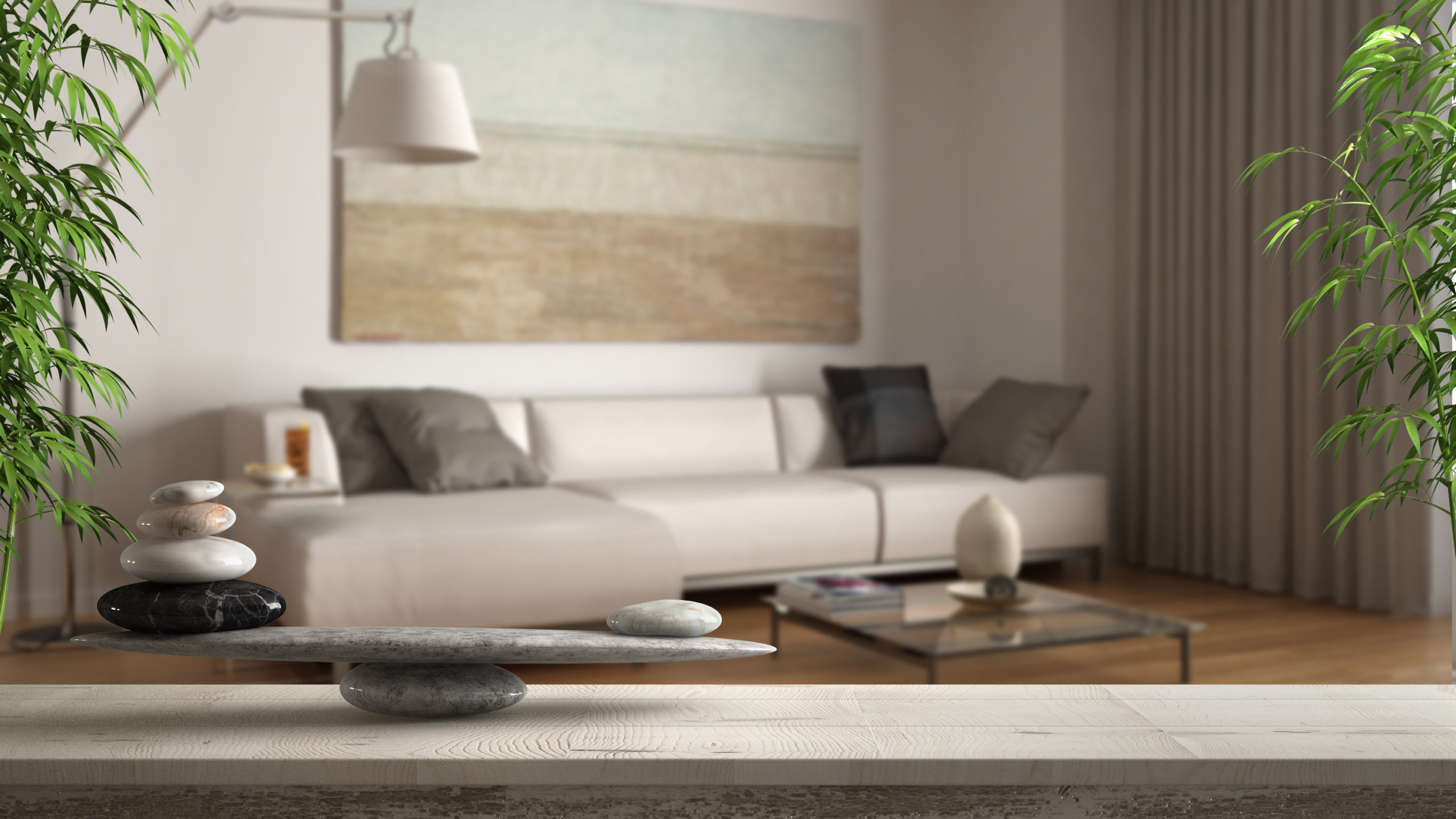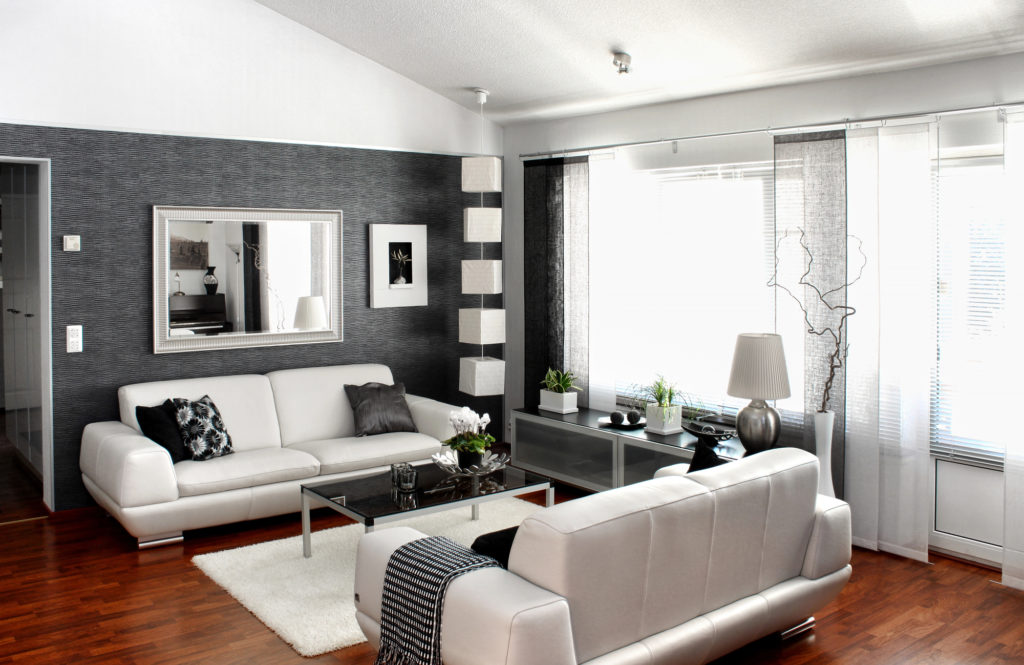Feng shui is an ancient Chinese practice that involves arranging the physical environment to promote positive energy flow, known as “chi.” Creating a harmonious and balanced space using feng shui involves arranging space in a way that promotes positive energy flow and a sense of well-being. While you can implement feng shui principles in any room, such as in the kitchen, here are some tips for your living room space:

1. Clear the Clutter
Clutter can have negative effects on both the visual appeal and energy flow of your living room. To create a harmonious environment, begin by eliminating unnecessary items and organising the ones that remain. It is also advisable to keep surfaces and floors clean and uncluttered to facilitate a seamless flow of energy, especially in cramped spaces.
2. Create a Focal Point
A focal point in your living room not only adds visual interest but also helps to direct the flow of energy. This can be a fireplace, a beautiful piece of artwork, or even a stunning view from a window. Choose a focal point that you find visually appealing and arrange your furniture around it to create a balanced and harmonious space.
3. Position Furniture Strategically
Furniture placement plays a crucial role in feng shui. When arranging furniture in your central gathering space, arrange seating areas in a way that fosters communication and connection among family members and guests. It is recommended to avoid placing furniture with their backs to the main entryway, as this can create feelings of unease and disrupt the flow of energy. Furthermore, it is important to maintain adequate spacing between pieces of furniture to facilitate easy movement and create a harmonious flow of energy within the room.
4. Avoid Sharp Corners
In feng shui, sharp corners are believed to create negative energy, also known as “sha chi.” These sharp corners can symbolise cutting or piercing energy that disrupts the flow of positive energy in your living room. To promote a more harmonious and balanced space, it is best to avoid furniture or decor with sharp angles or edges. Instead, opt for rounded or curved furniture pieces that create a soft and gentle flow in the room, and will help to promote a more peaceful and soothing atmosphere.
5. Balance the Elements
According to feng shui principles, incorporating the five elements in your living room can bring harmony and positive energy into the space.
For the wood element, which represents growth and vitality, simply add wood furniture or decor, such as a coffee table or bookshelf. For the earth element, which brings grounding energy to the room, incorporated earthy tones and textures, such as brown or beige rugs or throw pillows. For the fire element, which represents passion and transformation, use candles or a fireplace. For the metal element, which represents strength and clarity, use metallic accents or decor, such as metal sculptures, picture frames, or lamps. And for the water element, which symbolises abundance and prosperity, add a small fountain or fish tank.
6. Use the Power of Colour
The colours you choose for your living room can greatly impact its feng shui. Opt for relaxing and soothing colors such as soft neutrals, pastels, and earth tones to promote a sense of calm and peacefulness in the space. Avoid using bold, vibrant colours that can be overly stimulating and disrupt the flow of energy for large furniture pieces. Instead, incorporate those colours through decorative elements such as pillows or pieces of artwork to strategically add energy to the space.
7. Incorporate Mirrors
Mirrors are powerful feng shui tools as they reflect light and energy, creating the illusion of more space. Place mirrors strategically in your living room to enhance the flow of energy and make the room feel larger and more open. Avoid placing mirrors directly facing the main door, as this may reflect positive energy out of the room.
8. Make Use of Lighting
Proper lighting is essential for creating a positive atmosphere in your living space. Utilise a combination of light sources such as ambient, accent, and artificial lighting to add depth to the space and enhance its feng shui. Avoid harsh overhead lighting and opt for softer and warmer lighting options instead.
Natural lighting brings positive energy into your living room. Open up your curtains or blinds during the day to let in as much sunlight as possible. If privacy is a concern, you can use sheer curtains or blinds that allow light to filter through while still maintaining some level of privacy.

Incorporating Feng Shui in Your Living Room
By following these tips and incorporating better feng shui practices in your living room, you can create a more harmonious and balanced environment that promotes positive energy and well-being. Remember to personalise the space according to your preferences and tastes, while still keeping in mind the principles of feng shui. With intention and a little effort, you can transform your living room into a sanctuary that supports relaxation, connection, and positive energy flow.


